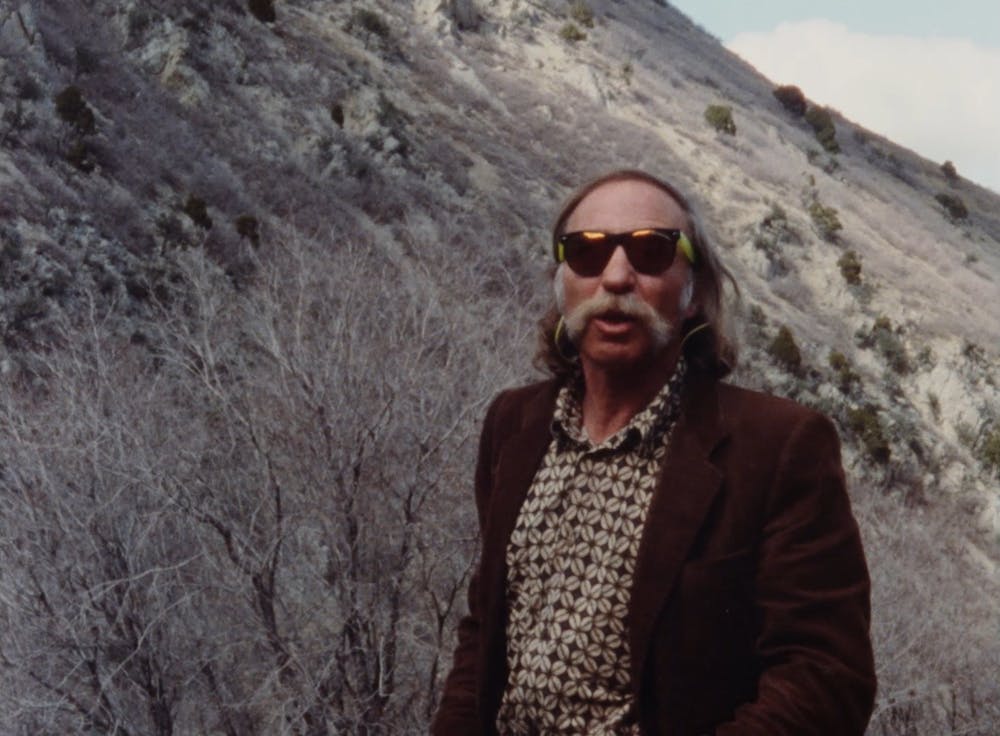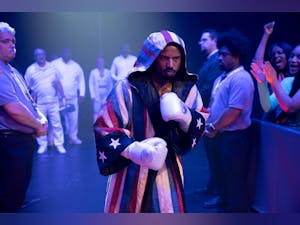From: Silver Screen
‘Film About a Father Who’ candidly explores kinship and neglect

Ira Sachs Sr. in "Film About a Father Who" by Lynne Sachs
“Film About a Father Who” opens on Ira Sachs, the filmmaker’s father, flinching as a comb works through his long and wiry hair. In this frame, Ira is an unknown elderly man who looks tired, harmless and boring. As the documentary untangles the web of adventure, women and children that make up his life, he proves to be quite the opposite.
Filmed and directed by Lynne Sachs, “Film About a Father Who” is an examination of Ira’s role in the lives of those who are close to him. Ira is initially depicted as a gregarious and quirky businessman who takes his work calls while riding ski lifts. As the film progresses, his cavalier attitude toward life appears to put a heavy burden on his children, his mother and his romantic partners.
The caricature that Ira fulfills — an absent and negligent father — is a bit tired, but his story is nonetheless worthy of hearing, especially as Sachs’ approach to making this documentary creates a genuinely emotional audience experience.
Sachs meticulously pieces together moments of her father’s life and interviews with those who know him intimately to make up this documentary. The shots featured were taken over a 35-year period, which only makes it feel more organic.
“Film About a Father Who” is often dreamlike and nostalgic. Sachs is imaginative with her talking heads, scene transitions and introductions. Sometimes the timelines of events are unclear, but this haziness only emphasizes the overarching theme of general confusion about how she and her siblings should feel toward their father. He has nine children with multiple different women, and they each struggle to understand how to manage their relationship with him and each other.
The most intriguing aspect of this film is its level of candor and its genuine purpose. Sachs makes no futile attempts to give her viewer definitive answers. Like its title suggests, this documentary invites outsiders to consider who or what the father at the center of this film is. On the surface, he is an intriguing free spirit. As he complicates and impresses upon his children’s lives, he becomes toxic.
Sachs does not hold back on the negative portrayals of her father, and she makes no excuses for him. In a voiceover near the end of the film, Sachs says, “This is not a portrait. This is not a self-portrait. This is my reckoning with the conundrum of our asymmetry.” This film is not an invitation to view the spectacle that is Sachs’ eccentric father. It is instead a valiant attempt to come to terms with the chasm between them, even as they are inextricably linked.
“Film About a Father Who” can be watched online through various virtual cinemas.




